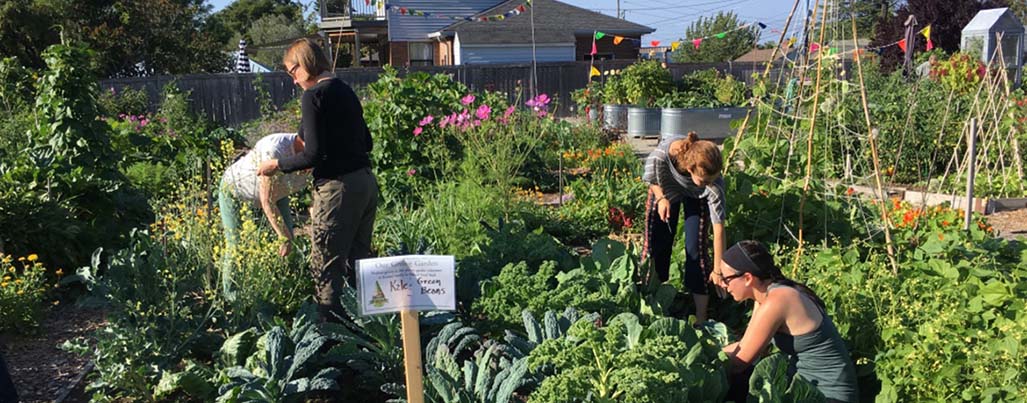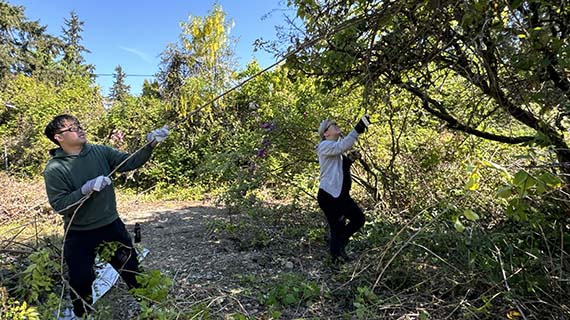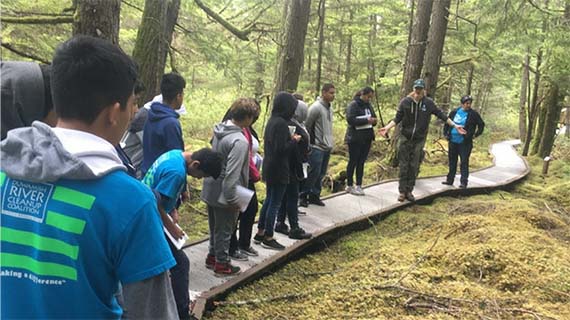Nonprofits and Conservation Futures
Conservation Futures grants for open space acquisition may be available to nature conservancy and historic preservation nonprofits.

Nonprofits interested in applying for the first time needed to contact us by July 31, 2025, to request an eligibility and capacity review process. Interested nonprofits may still contact us at this point to discuss ideas, but we will likely be working on eligibility and capacity review during 2026 for the next grant round.
What nonprofits are eligible for Conservation Futures funding?
Conservation Futures grants may be awarded to two types of nonprofits: 501c nature conservancy nonprofits and 501c3 historic preservation nonprofits (see this document for technical definitions). Nature conservancy nonprofits need to have one of their primary purposes be to conserve open space or natural resources for public benefit. For example, conserving natural resources for public benefit might include concepts such as preserving farmland for a collective, community-led farming opportunity to produce locally grown food.
Examples of nonprofit-led projects
Examples of nonprofit-led projects that may be a good fit for a Conservation Futures grant include:
- preserving a site as a local park, open space, or natural area valued to a community
- creating a community garden or p-patch
- providing a collective farming opportunity that allows for farmland access and tenure to individuals who have historically not had access to farmland
- securing land to produce culturally relevant food to serve the community in direct support of the nonprofit’s mission
Examples of projects that may not be a good fit for a Conservation Futures grant:
- projects that are providing farmland for use by a for-profit business that has a corporate foundation or a parent-subsidiary relationship with your nonprofit (King County Farmland Preservation Program easements might be a better option)
- projects that don't have a clear public benefit tied to nonprofit mission or associated with land conservation
- projects that envision intensive capital development (for example, a museum); ongoing residential uses; a site that will support mostly built-out, non-open space uses or active recreation.


Key Information: Getting to know your organization
Land acquisition brings opportunities to fulfill a nonprofit’s vision. It also comes with significant operating costs, capital costs, risks, and responsibilities. We want to develop a relationship with interested nonprofits before application. We want to make sure that nonprofits are fully prepared to take on land management responsibilities. Since these grants require a forever land ownership obligation, these grants are typically a better fit for organizations that have a track record of success, strong organizational structure, and demonstrated financial resiliency. The pathway to a Conservation Futures grant may be a multi-year process. We hold our organizational review process in the summer of each year, ahead of the grant round opening in the fall.
-
Talk with us as early as possible
Please email Ingrid Lundin. As noted above, our nonprofit entry point for organizational review is in the summer of each year, so we can review organizational capacity ahead of the grant round opening in the fall. Inquiries received during other times of the year will likely put you on track for organizational review the following year.
-
Eligibility review
We will review your organization’s articles of incorporation filed with the state of Washington to determine if you are an eligible applicant. -
Share your information & follow-up conversation
For our organizational review held during the summertime, we want to have conversations with you, and gather information about your organization’s goals, vision, financial health, and organizational practices (see our capacity review process handout).
-
We evaluate and respond
We'll do capacity review, and give feedback about readiness to apply.
Contact us
Please contact Ingrid Lundin, Conservation Futures Coordinator, about your project idea. We’d love to get to know your organization and discuss whether your project may be a good fit for Conservation Futures.
For additional nonprofit resources, please see this nonprofit resources handout, and view this training for nonprofits considering in investing in real estate purchases using our grants (produced by Nonprofit Finance Fund).
Photo credits
1 Save Ballard P-Patch
2 Ching Community Gardens
3 SHADOW
 Translate
Translate